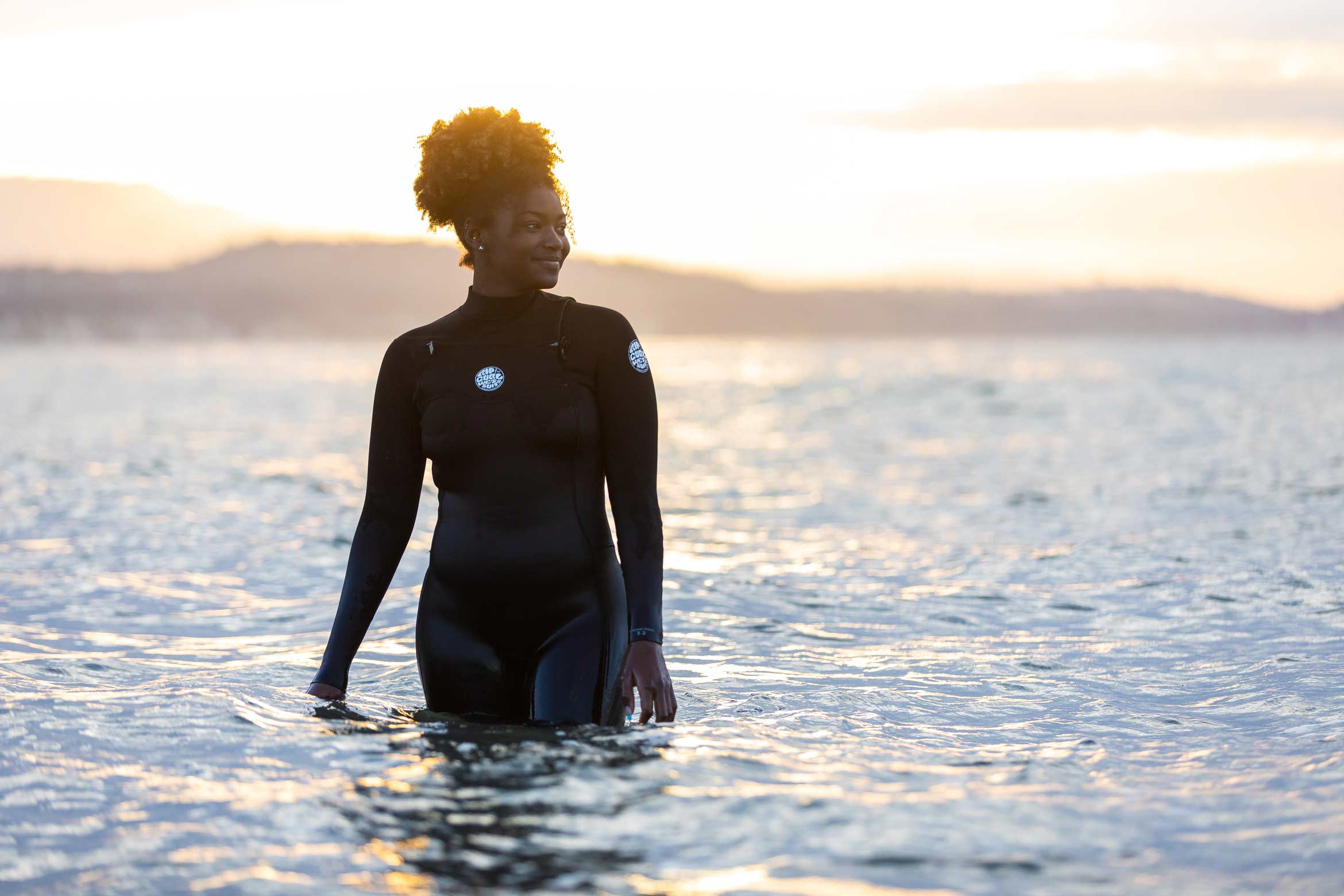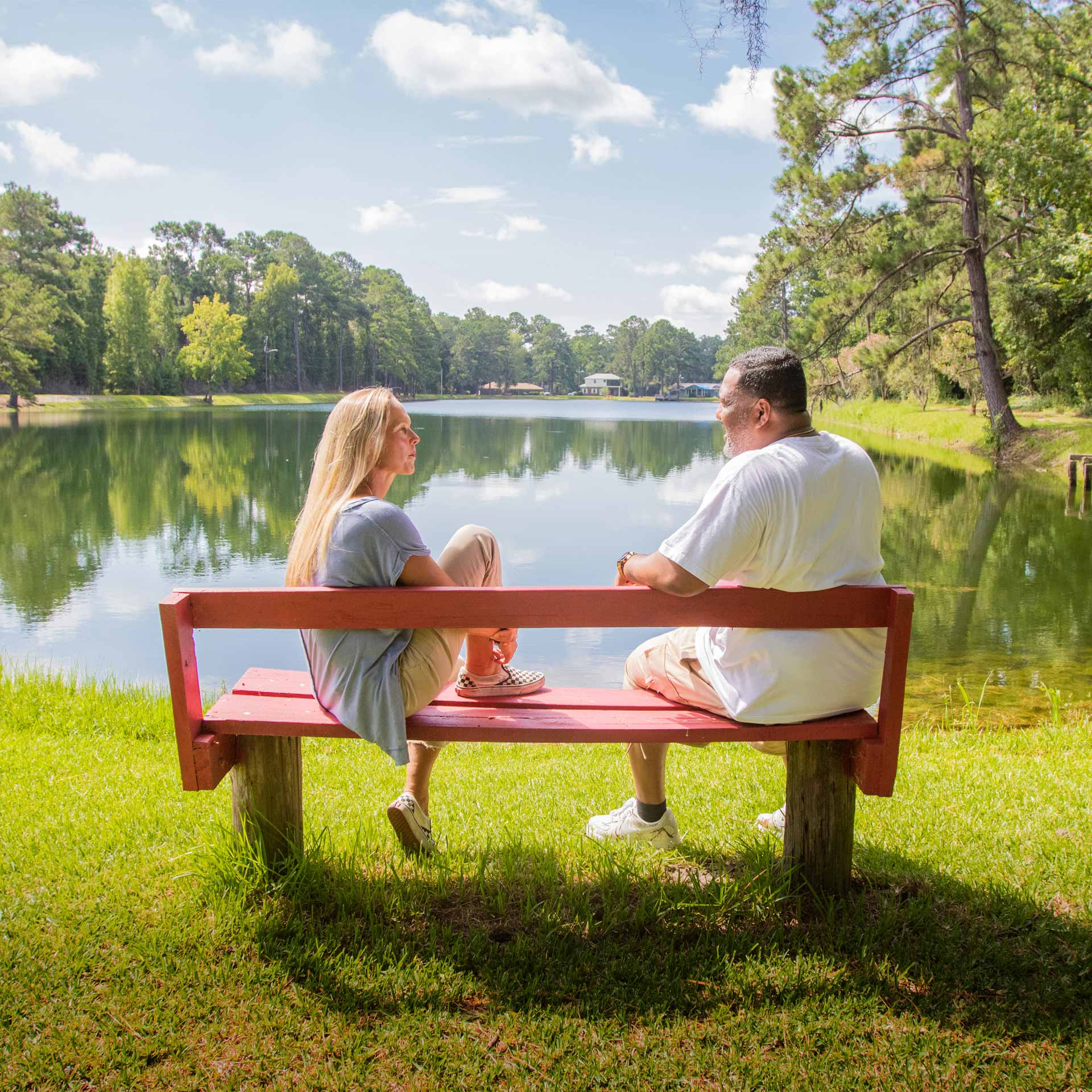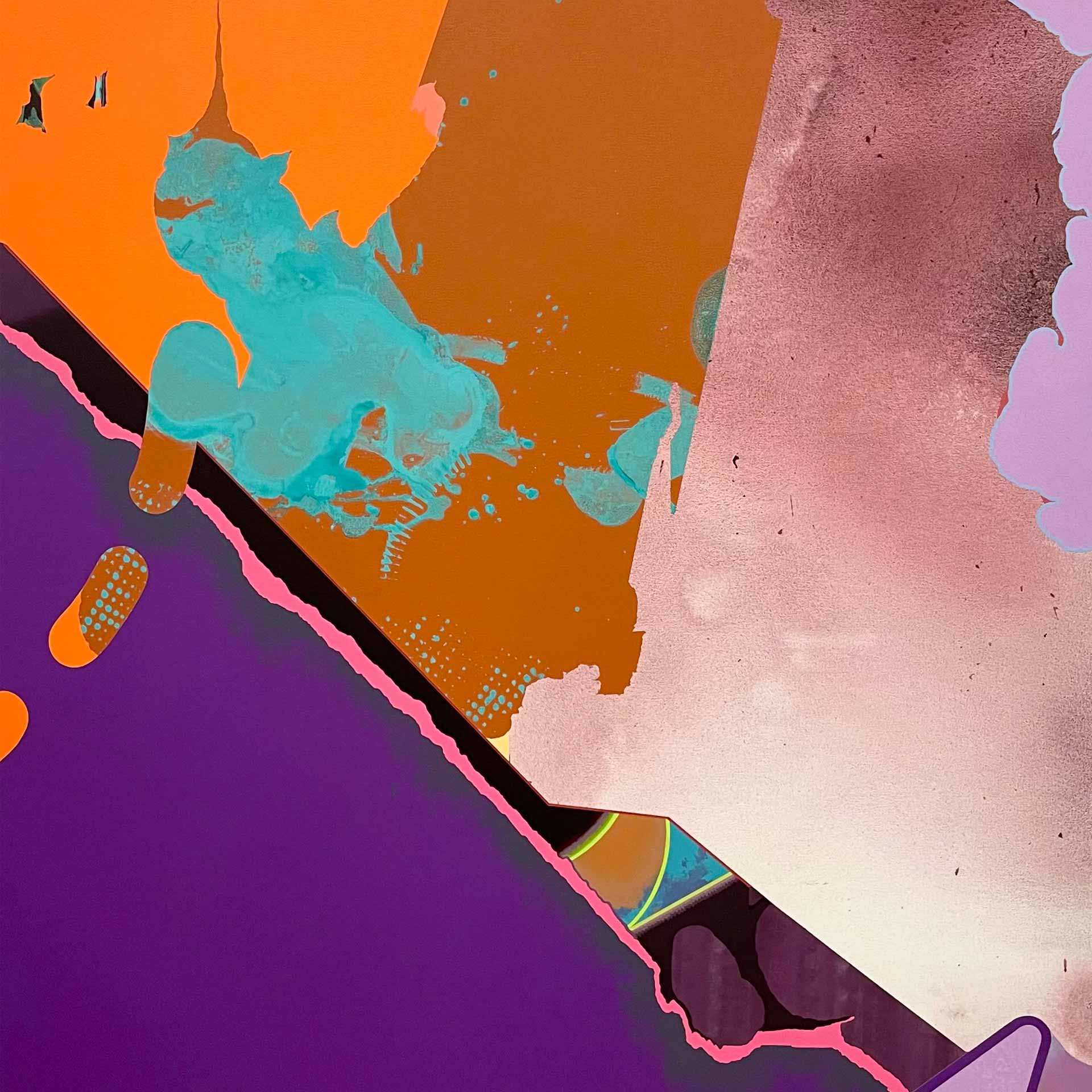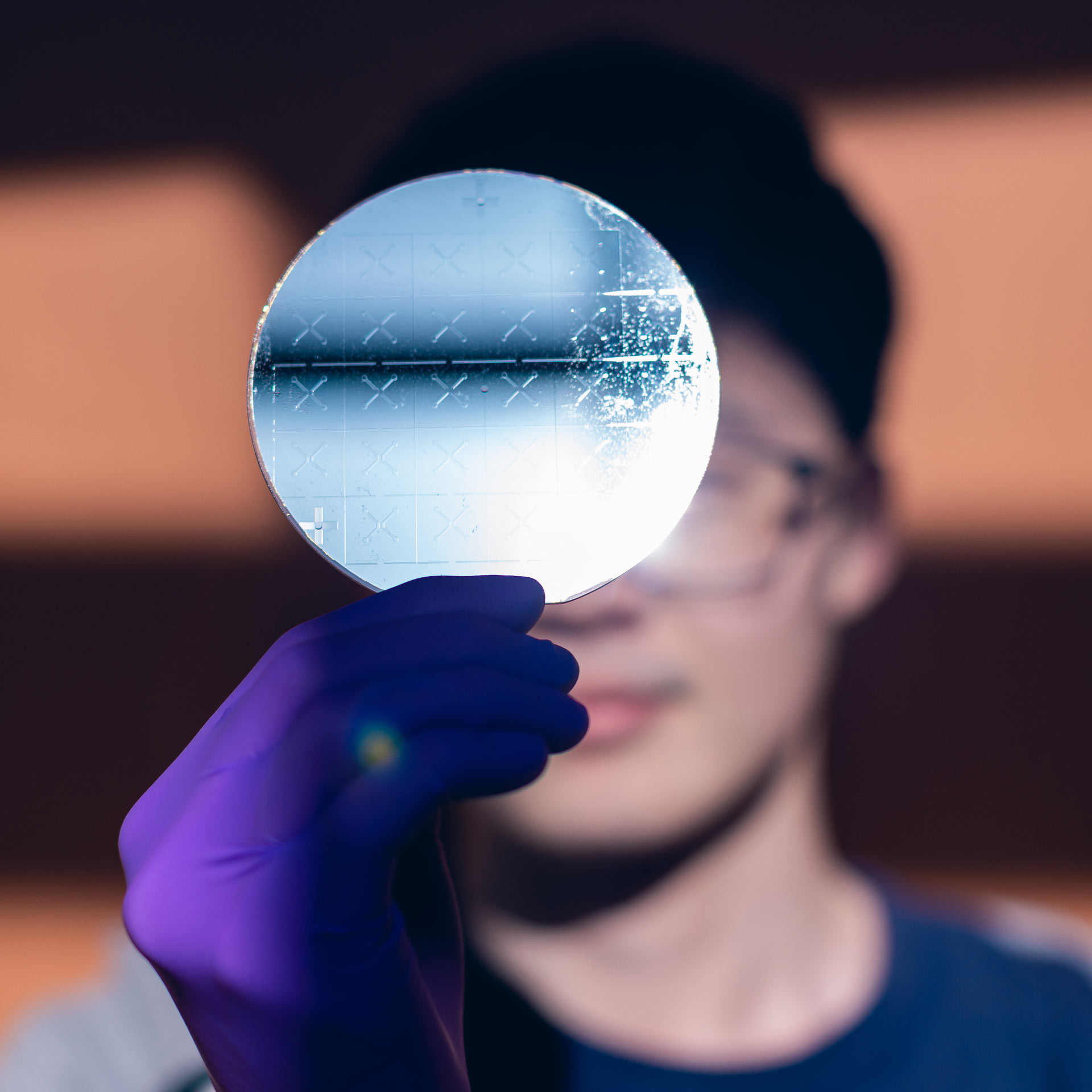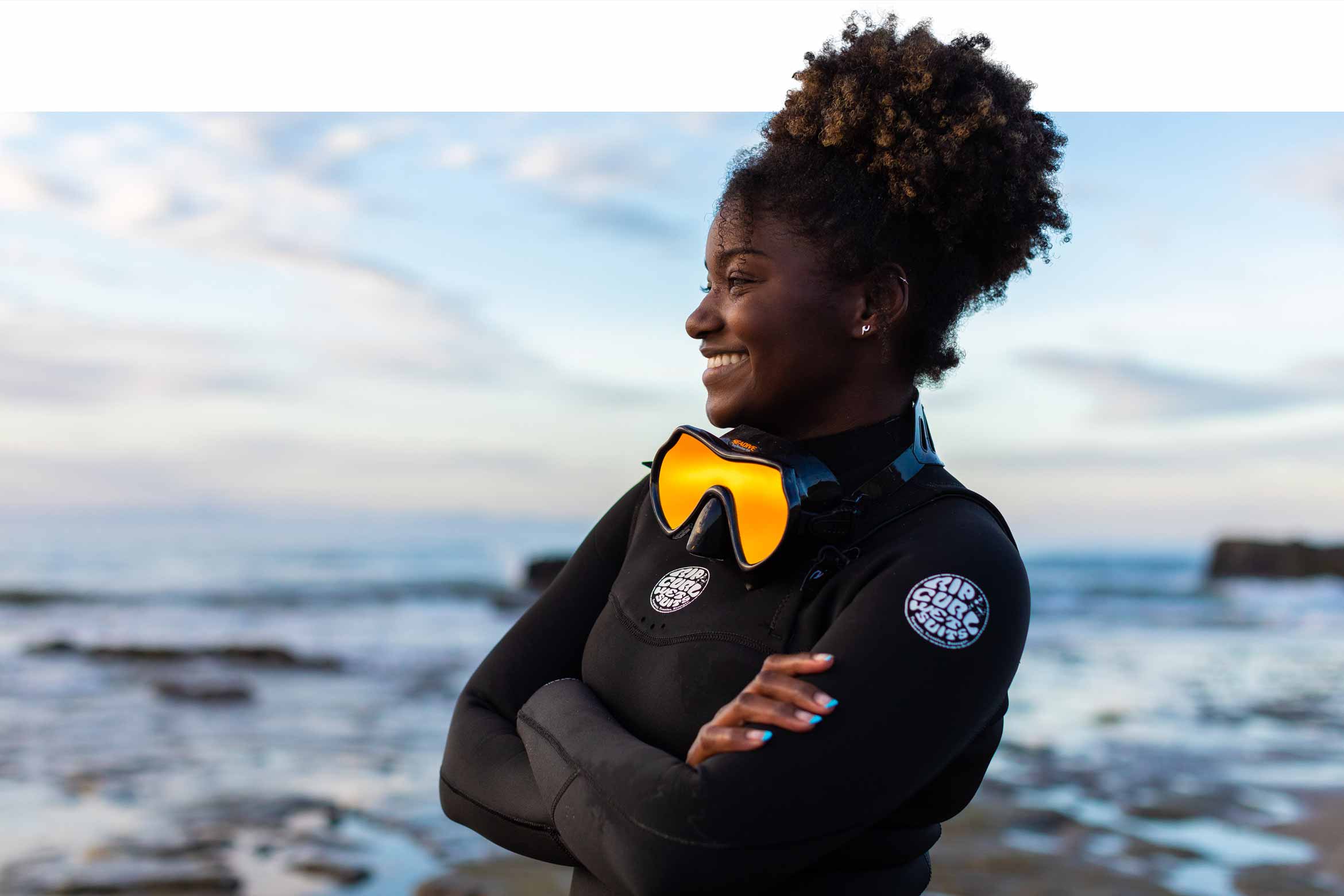
As a teenager, Jada Alexander fell in love with the ocean. It was a frustrating long-distance relationship at first, though, since she lived more than an hour from the nearest beach.
As soon as she got her driver’s license, she was heading west from Hemet, her hometown, to the beaches near Oceanside as often as possible. “I taught myself to surf and often would stay to watch the sunset on the water,” says Alexander, now a thirdyear environmental studies major. “I fell into environmentalism by falling in love with the environment around me.”
Alexander knew that she was drawn to the ocean, but she wasn’t quite sure how to translate that to academics until she arrived at UC Santa Barbara. She heard about an opportunity to visit the Moorea Coral Reef Long Term Ecological Research Site in French Polynesia and applied — and was accepted — without ever having done any formal marine research.
“I hated science in high school,” Alexander recalls now. “(In Mo’orea), I started doing research without fully comprehending it was true science. When you’re younger, it feels like being a scientist is one thing and then you learn that it’s actually a lot of different things.”
After the trip, Alexander decided to devote herself to three interconnected causes: environmental education, inspiring those who are intimidated by science, and increasing diversity in marine research. She now works in UCSB’s Ocean Recoveries Lab with Professor Adrian Stier and is starting her own independent research project to explore how sea urchins respond to heat stress.
Alexander has done work for organizations like The Sea League, which increases diversity and safety in ocean sports, and Black in Marine Science, which encourages young Black people to enter the marine research fields. She hopes to get a Ph.D. in marine science after she completes her undergraduate degree.
“UCSB is a space where people are ready to uplift you, so that you can become who you want to be,” Alexander says. “This university comes with a very large stage, and I am very grateful to be here.”
Inspired by the opportunities she has been given, Alexander says she is looking for ways to be a mentor to students who feel the same powerful pull from the ocean. “Something that has really encouraged me is that repeatedly, people have stretched out their arms to me,” she says. “I want to do that for the next person.”
The chance to reciprocate some of the care she has received from marine environments over the years is another big motivator. “I want to give back some of the safety and comfort that the ocean has given me,” Alexander says. “So many big choices in my life have been due to my relationship to the water.”
